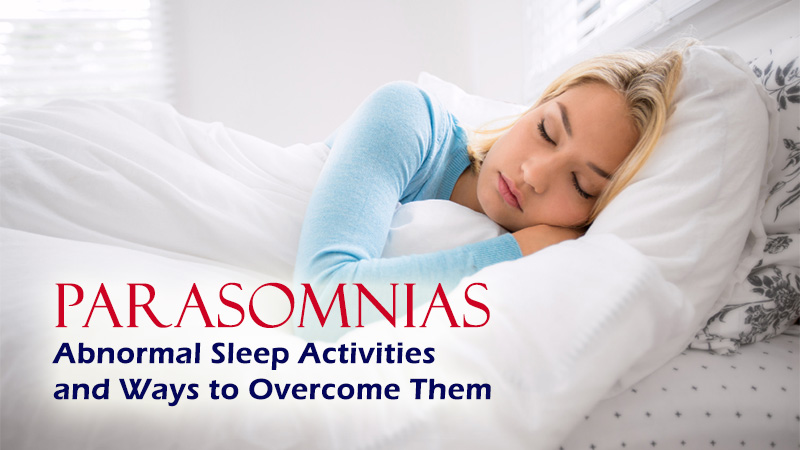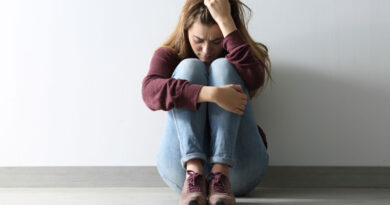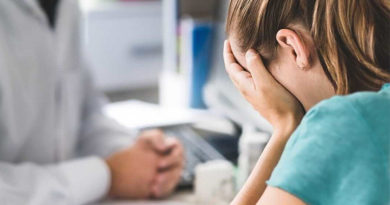Parasomnias: Abnormal Sleep Activities and Ways to Overcome Them
Do you occasionally wake up with cookie crumbs on your pajamas and wonder where in the world they came from? Do you sometimes wake up somewhere you did not fall asleep? Is your jaw sore when you wake up? If anything of these things sounds like you, you may be a victim of parasomnia.

Parasomnia: what it is
Parasomnia is defined as an undesirable behavior that occurs during sleep. Some parasomnias are associated with lighter levels of sleep. These so-called “disorders of arousal” occur during the non-REM, or rapid eye movement stage of sleep. Arousal disorders include sleepwalking, eating while asleep and night terrors.
REM sleep disorders include acting out vivid dreams, vocalizing while asleep (somniloquy) and violent body movements, according to the Mayo Clinic. Bed-wetting, also known as enuresis, bruxism (teeth grinding), sleep paralysis and a rare condition called “exploding head syndrome” are further forms of parasomnia.
Night terrors are the worst nightmares a person can have. Couple them with sleep paralysis and you’re in for a rough night. If night terrors are related to stress, try taking a good long soak in a bathtub before turning in for the evening. Even better, add a few drops of lavender oil to the tub for additional relaxation. Lavender is a known sleep enhancer with a fragrance that is nice to sprinkle on pillows, blankets, towels and bedding, too.
Risk factors for parasomnia
Anyone can develop a sleep disorder at any time of life. Some parasomnias, such as bed-wetting, typically occur in young childhood. Adults who suffer from enuresis should talk to a physician, as bed-wetting may be associated with apnea, congestive heart failure, and Parkinson’s disease.
Overuse of alcohol, prescription medicines, and street drugs may lead to periodic bouts with parasomnia. Persons diagnosed with PTSD may begin to experience chronic parasomniac behaviors within weeks of their trauma. Stress and genetics may also play a role in the development of parasomnia.
Suggested treatments for parasomnia
Experts advise sleepwalkers to put locks on their doors and alarms on their windows. Persons who sleep walk may wish to clear their bedroom of obstacles and sleep on a ground floor to lessen their chances of an accident while somnambulating. The American Academy of Sleep Medicine also recommends that shift workers adjust their schedule if at all possible.
A regular sleep-wake cycle is crucial to good health. If you can, go to sleep at the same time every night and use a gentle waking system in the morning. Learn more about the Apalon alarm clock app at Google Play.
Persons who suffer from sleep apnea are advised to consult with a sleep specialist without delay. Not only does the disorder cause all-day tiredness, apnea may also contribute to a number of serious health issues. Fortunately, CPAP mask technology may provide a good night’s sleep to those with apnea.
Getting a good night’s snooze is not always easy. Try a few of the aforementioned tips and see what works best for you.


